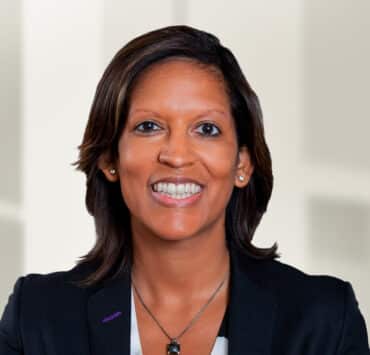With its third century of service on the horizon, Mercy continues to pursue the vision it identified more than a decade ago: getting health care right for its coworkers and communities. As a highly innovative system nationally recognized for quality and safety, its goal is to bolster the health of entire populations and maximize its impact on the future of medicine through strategic partnerships, an engaged workforce, and empowered leadership. At the helm sits Steve Mackin, president and CEO of Mercy.
The healthcare system is very aware of workforce challenges and believes talented coworkers have always been key to their success. “There’s been a lot of labor challenges within health care, particularly as we emerge from the height of the COVID pandemic,” Mackin says. “Mercy has made managing those challenges one of our top priorities.”
Mercy’s focus extended beyond just adding new coworkers to stabilize its workforce. It embraced innovations such as a gig workforce, which allows part-time workers to pick up shifts using an app. Mackin explains, “This has allowed Mercy to add a lot of talented healthcare professionals who were not necessarily in the workforce to come back and pick up shifts here and there as it fits their schedule.”
The organization also created flexible options for its frontline workers and added changes to its benefits structure to make it more attractive. This included addressing unexpected coworker needs to respond to issues such as the sharp increase in gas prices.
“We’ve put a significant focus on reimagining the role of our managers,” Mackin explains. “Their work changed significantly through the COVID pandemic, and there’s been a lot of pressure on them. So we’ve found new ways to support our managers by taking out noncritical aspects of their job, allowing them more time and energy to lead effectively.”
“The ultimate legacy Mercy seeks is a meaningful impact on the health of every community we have the privilege of serving.”
Steve Mackin
One way Mackin and Mercy refocused and emphasized its talented workforce was by partnering with Talent Plus. The president and CEO explains he has had exposure to Talent Plus for over twenty-five years and enjoys working them, as he believes in the science of the company’s process.
“I am a believer in the Talent Plus process as a way to identity and develop people,” he says. “I have seen personally that when you have a highly talented team the odds of success dramatically improve.” According to Steve Mackin, working with Talent Plus is not just about “accumulating the most talented individuals to lead an organization or lead a hospital or a clinic, it’s also about the composition of the team.” In fact, his goal is to better understand and execute the creation of a diverse and complete team of leaders committed to Mercy’s mission.
“I think that’s where my focus with Talent Plus has really been: creating a well-rounded team. Mercy is at a place where we already have a highly talented group of leaders,” Mackin says. “But now we must assemble the optimal team to respond to different sets of circumstances in diverse communities.”
When starting his role, Mackin conducted a listening tour across the organization’s communities across multiple states. Through this 13,000-mile event, he saw how his coworkers are inspired and connected to Mercy’s mission. He also saw the need and benefit of being more competitive with base rate of pay and incentive models.
“We’ve put a significant focus on reimagining the role of our managers. Their work changed significantly through the COVID pandemic, and there’s been a lot of pressure on them . . . we’ve found new ways to support [them] by taking out noncritical aspects of their job, allowing them more time and energy to lead effectively.”
Steve Mackin
The tour provided Mackin newfound clarity for what he wanted to accomplish as a CEO. “Ultimately, I believe if Mercy has the most empowered coworkers in healthcare, we will generate the best results for our patients,” he says. “Where you see empowerment is where people have a say in their work and how their time is spent. They are able to engage meaningfully with their leader on a regular basis and in cadence with others in the ministry. Where those systems were broken down, or our leaders were bogged down, a sense of empowerment was lacking.”
Mackin took several practical steps so frontline workers could engage with their leaders directly. “Of all the changes we’ve made, I think one of the most important is making sure all our frontline coworkers have frequent and consistent conversations with their leaders,” he believes.
Another key effort is his purposeful and individualized approach that he takes with his leadership team. “We’ve been able to organize our team so each individual is focused on areas that align with their strengths, that set them up for a new level of success,” Mackin explains.
As he looks to the future, Steve Mackin knows how he will ultimately measure his impact. “The ultimate legacy Mercy seeks is a meaningful impact on the health of every community we have the privilege of serving,” he concludes.


